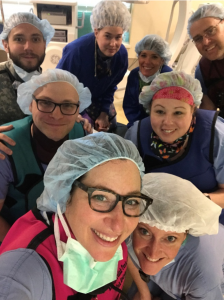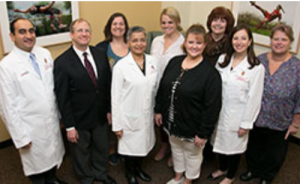 Fellows spend up to one full day per week in the Spine Clinic, Pain Management Clinic, Headache Clinic, and/or Cancer Pain Clinic to gain competence in assessment, workup, and management of patients with various types of pain states. They become familiar with basic neuroimaging studies including CT and MRI of the spine and brain, psychological testing, and electrophysiologic tests including quantitative sensory tests.
Fellows spend up to one full day per week in the Spine Clinic, Pain Management Clinic, Headache Clinic, and/or Cancer Pain Clinic to gain competence in assessment, workup, and management of patients with various types of pain states. They become familiar with basic neuroimaging studies including CT and MRI of the spine and brain, psychological testing, and electrophysiologic tests including quantitative sensory tests.
More than 10,000 patients visit the Spine Clinic each year. The Spine Clinic rotation helps fellows gain competence in musculoskeletal system examination techniques, diagnosis and management of musculoskeletal injuries and pain states, evaluation and treatment of injured workers and athletes, and impairment rating.
The Chronic Pain and Headache Clinic serves approximately 10,000 patients per year. Fellows are trained in neurological assessment techniques, diagnosis and treatment of neuropathic pain, visceral and pelvic pain, use of opioid and non-opioid analgesics, multimodal therapy, managing and troubleshooting patients with implantable drug delivery systems, and adjusting intrathecal analgesics. Fellows gain experience in evaluation and treatment of primary and secondary headache disorders. Fellows also spend one week with psychology faculty to:
- Understand the principles of psychological testing and treatments
- Develop effective interview and communication techniques
- Learn team training and conflict resolution skills
- Identify and manage pain patients with psychological co-morbidities
![]()


